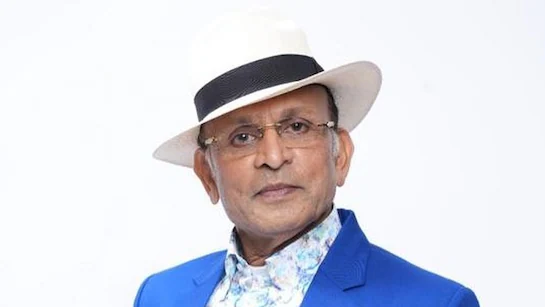New Delhi: The recent remarks by actor Annu Kapoor, challenging the widely accepted designation of Mahatma Gandhi as the Father of the Nation and refusing to label his assassin, Nathuram Godse, as a terrorist, are deeply problematic. While freedom of speech is a cornerstone of democracy, it doesn’t grant immunity from critique, especially when the arguments presented rest on shaky historical and logical foundations, verging on historical revisionism.
The Constitutional Quibble: Missing the Spirit of the Title
Kapoor’s primary objection—that the term ‘Father of the Nation’ has no explicit mention in the Indian Constitution—is a pedantic evasion of reality. Titles of profound national reverence, like ‘Mahatma’ or ‘Father of the Nation,’ are earned through popular acclaim, historical consensus, and monumental contribution, not bureaucratic fiat. They are cultural and historical acknowledgments, not legal designations.
To dismiss Gandhi’s foundational role in India’s independence movement because a specific title isn’t codified in an article of law is to willfully ignore the context of India’s struggle. The title reflects the nation’s collective gratitude for his unique, non-violent leadership that united a disparate population against colonial rule. The spirit of the nation’s reverence for Gandhi is what matters, not a missing footnote in a legal document.
Redefining Terrorism to Absolve Godse: A Dangerous Fallacy
The most jarring aspect of Kapoor’s commentary is his refusal to call Nathuram Godse an ‘terrorist.’ His argument hinges on a narrow, arguably self-serving definition: that Godse, having killed only one person, doesn’t fit the ‘terrorist’ mould, which he implies should involve the mass murder of many people driven by ‘fanaticism’ (mataandh).
This reasoning is flawed on multiple counts. Terrorism, in its essence, is the unlawful use of violence and intimidation, especially against civilians, in the pursuit of political aims. Godse’s act was a premeditated political assassination intended to silence a core ideology and disrupt the socio-political fabric of the newly independent nation. It was not a crime of passion or a personal vendetta; it was an act of extreme, targeted violence driven by a distinct, radical political ideology rooted in the opposition to Gandhi’s inclusive secularism.
Godse’s own lengthy statement during his trial clearly establishes the political motive and ideological fanaticism behind the murder. The goal was to remove a figure whose ideals he believed were detrimental to his vision of India. While legally he was convicted as a murderer and executed, the nature of the crime—a deliberate act of violence for a political purpose aimed at causing wider political terror and chaos—qualifies it as an act of political terrorism, a concept that exists independently of the modern, international definition often tied to non-state actors causing mass casualties. To elevate Godse’s crime from mere murder to a political ‘ideological’ act, only to then deny it the terrorist label based on the body count, is a gross historical and moral abdication.

Questioning the Legacy: A Misguided Historical Review
Kapoor’s questioning of Gandhi’s role as a “politician” or a “hero of freedom” based on selective historical readings—such as citing his early-life views in South Africa—is typical of attempts to delegitimise a colossal figure by focusing on human flaws or early-stage development, divorced from the arc of his life’s monumental achievements.
History judges figures not just by their initial missteps, but by their ultimate impact. Gandhi’s unparalleled contribution to mass mobilisation, non-violence (Satyagraha), and his relentless fight for social justice and independence remain the bedrock of modern Indian identity. To discount this legacy, or to place it on par with the ideology of his assassin, is to indulge in unwarranted moral equivalence.
The nation’s collective memory, symbolised by statues and global recognition, is not a mistake that a singular editorial viewpoint can correct. It is a testament to the enduring power of Gandhi’s philosophy and his ultimate sacrifice for his ideals.
Kapoor’s stand, dressed in the garb of constitutional literalism and philosophical debate, ultimately functions to relativise a moral absolute: the assassination of the Father of the Nation for political gain. It’s a stand that deserves rigorous and uncompromising critique.






